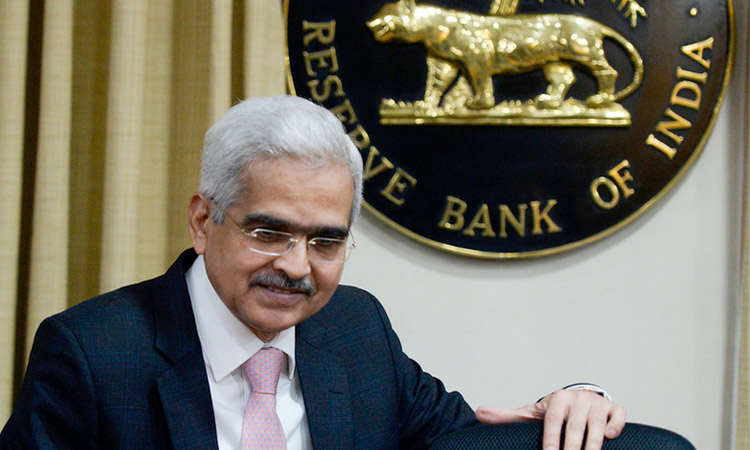Indian shares slide on weak economic data, virus worries

A worker transporting cooking gas cylinders on a cart rides past the Jama Masjid in New Delhi on Friday. Agence France-Presse
The NSE Nifty 50 index ended 1.71% lower at 9,154.40 and the benchmark S&P BSE Sensex closed down 1.68% at 31,327.08.
The Nifty index finished the week 1.2% lower and the Sensex closed the week 0.83% down.
Asian stocks fell and US stock index futures indicated a lower open as investors also worried over reports that an experimental drug to treat COVID 19 showed inconclusive results.
US business activity plumbed record lows in April as strict stay-at-home orders crushed production, supply chains and consumer spending, a survey showed.
Financials were among the worst hit in Mumbai trading, with Axis Bank Ltd, ICICI Bank Ltd and IndusInd Bank Ltd sliding 4.5%-5.6%.
The Nifty Bank Index dropped 3.3% and the Nifty PSU Bank index tumbled 3.7% Franklin Templeton Mutual Fund, one of India’s most prominent mutual fund houses within the fixed income space, said late on Thursday it would wind up six credit funds with a large exposure to higher-yielding, lower-rated credit securities, citing severe market dislocation and illiquidity caused by the coronavirus.
Shares in HDFC Asset Management Co, India’s largest mututal fund manager, slid over 6%, while shares in top private sector lender HDFC Bank fell nearly 1%.
“The continuous underperformance from the banking pack will remain the overhang on the benchmark ahead also,” said Ajit Mishra, VP-research, Religare Broking.
“Consistent buying interest mainly in pharma and select FMCG majors is indeed providing some solace to the participants but it’s not sufficient enough to trigger a sustainable up move in the benchmark.” India has extended the biggest lockdown in the world to curb the spread of the coronavirus, which has infected over 23,000 and killed 718, according to government data.
The economy is likely to suffer its worst quarter since the mid-1990s due to the lockdown in the three months ending in June, according to a Reuters poll, which predicted a mild and gradual recovery. India’s rupee, among Asia’s worst performing currencies this year, could be the fastest in the region to rally as the world restarts economic activities after the coronavirus pandemic, oil prices weaken and the US dollar eases broadly, analysts said.
The partially convertible Indian rupee has lost nearly 7% against the dollar so far this year, despite heavy dollar supplying intervention by the central bank. It hit a life low of 76.92 to the dollar on Wednesday.
But a turnaround could be swift because of the collapse in the price of oil, which is a major import for the country, and the return of foreign investment into rupee stocks and bonds.
The crash in oil prices to 18-year lows is in particular a tailwind for the rupee and could even return the country’s current account balance to a surplus for the first time in 15 years, economists said.
“Global liquidity glut and prolonged lower global rates is expected to bring back risk-on sooner than the recovery in the real economy. I expect to see a recovery in the rupee in the next month or so,” said Upasna Bhardwaj, economist at Kotak Mahindra Bank.
For the second-most populous nation in the world, India has so far seen only a little over 23,000 coronavirus infections and 718 deaths. Reported cases worldwide have crossed 2.6 million. India has had a nation-wide lockdown for more than a month.
“The only challenge for the rupee is if the health situation worsens,” said Sameer Narang, chief economist at Bank of Baroda, referring to the possibility of a second wave of infections in the country once the lockdown is lifted.
With oil prices at less than $20 a barrel, we don’t have to pay out too many dollars,” he added.
But a prolonged drop in oil prices from the virus-induced falloff in demand will not benefit even heavy importers such as India, and will likely lead to more monetary easing from its central bank.
“Asian currencies generally fare poorly in a weak growth environment, hence its strong correlation to oil prices. We expect low oil prices to coincide with further downward pressure on the region’s currencies,” economists at ANZ said in a note.
Some analysts, however, said the high interest rate differential in India was still likely to attract investors.
Agencies







